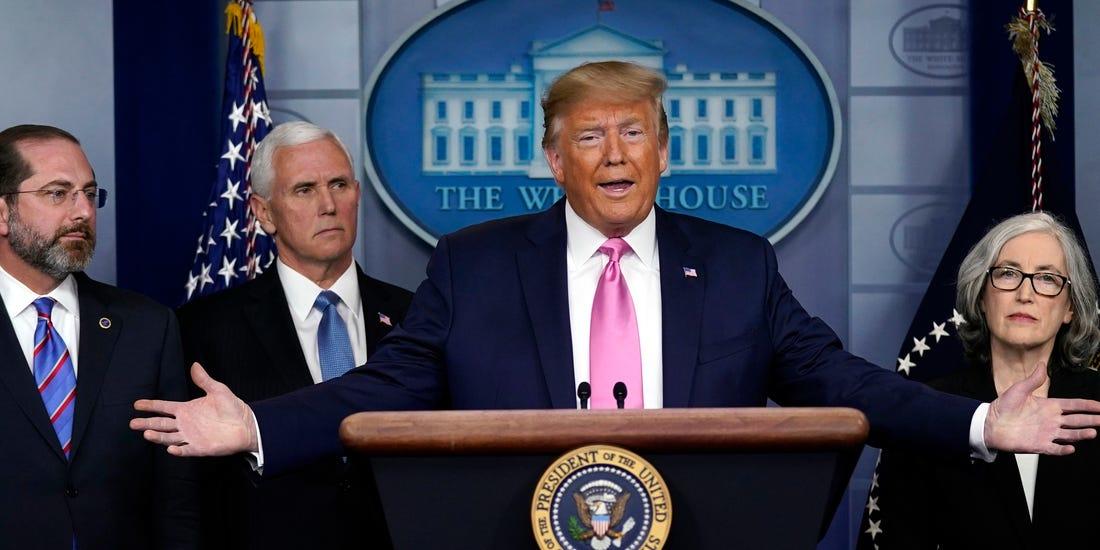Watch Live: As Anxieties Grow, Mnuchin Promises 'Paycheck Protection Program' Will Be On-Line "Tomorrow"
In addition to assuring the press that they had stayed up "until 4 am" to smooth out all issues, Mnuchin and Carranza insisted that checks would start landing in bank accounts and small businesses would have access to the loan programs (remember, this money was supposed to cover rent, utilities and payroll due on April 1) which would be "up and running tomorrow."
But as Mnuchin went on to discuss the program and how small business owners could access the funds, he mentioned one interesting little nugget that the White House had unsurprisingly decided to play down, we assume on the advice of whoever is still working on the Comms Office.
Mnuchin said that he was planning to raise the interest rate on the government-guaranteed loans (in other words, risk-free profits) to help make them "economic" for banks.
Remember, other than processing and administering the programs (no small expenses), the banks aren't taking any risk here, so they can book it as profit. With all the money expected to go out the door, this is essentially a massive handout to banks.
But with real rates effectively negative in the US, the banks apparently told the Treasury that 50 basis points wasn't a large enough tribute, and that if Mnuchin didn't pony up another 50 bps, the banks would walk away and just let Main Street eat itself.
Asked by a reporter for his 2 cents, Mnuchin said he believed Nancy Pelosi's push for a select oversight committee to investigate the federal response to the outbreak was unnecessary.
Of course, the banks would never actually do that. But Mnuchin and many other members of the administration (even Trump himself) have close ties to Wall Street. We suspect he didn't put up too much of a fight.
Oh, and earlier in the evening, Trump said he took another 'rapid' COVID-19 test, and tested negative. Trump said he took it "mostly out of curiosity to see how quick it worked.
Following reports about the administration deciding on an official 'recommendation' that the public wear facemasks when outside, President Trump, Vice President Pence and the rest of the White House coronavirus task force are holding their Thursday press briefing.

Commenti
Posta un commento